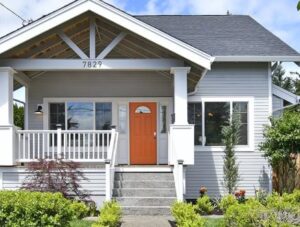Oregon Rent Increases To Be Capped At 10% For 2024

Thanks to recent reports, we know that Oregon Rent Increases will be capped at 10% for 2024. This is good news for tenants, considering that a 14.6% increase was allowed this year alone.
In this article we will break down rent increases for next year and provide tenants with more information about what they can expect over the next 12 months.
How Will Rent Increases Work?
For many Oregonians, rent increases will be capped at 10% in 2024, according to the calculations by Oregon’s Department of Administrative Services.
This is less than the 14.6% max increase allowed this year, but more than last year’s 9.9%.
Allowable increases in rent for housing that is at least 15 years old is determined by rules set in Senate Bill 608 and Senate Bill 611, which passed during the 2023 legislative session.
Under SB 611, an increase as high as the one allowed this year won’t happen again. The new law limits increase to 7% plus the Consumer Price Index for All Urban Consumers, or 10%, whichever is lower.
The restrictions don’t apply to newer housing or subsidized housing.
Landlords are allowed to set rent rates at whatever they choose for a new tenant, but they cannot raise rent on a tenant more than once in a 12-month period after the first year after the tenancy begins or without giving a tenant written 90-day notice.
Landlords in violation of the rules are liable for three months’ rent plus actual damages suffered by the tenant.
Oregon Rents Are Still Largely Affordable
If you’ve lived in other cities like San Francisco, Los Angeles, or Chicago in recent years, you know that rental properties in Portland, and elsewhere across Oregon are still more affordable than most major cities.
The report says that from Sept. 2022 to Sept. 2023, the median rent in the state is at $1,702, a 10.09% decrease over the last year. Only Oklahoma (10.62%) and Montana (15.49%) had higher rent drop percentages.
Washington also had a drastic rent percentage drop over the last year. Despite median prices sitting at $2,312 per month in the Evergreen State, it’s still a 7.96% decrease from last year.
Additionally, the Portland metro area, which was considered as Portland, Vancouver, and Hillsboro in the report, had the second highest rent price decrease for metropolitan areas in the U.S. Current average rent prices in Portland are listed at $2,267, a 12.86% decline from last year, according to the report. Only the Austin, Texas region had a steeper drop (14.29%).
Will Rental Properties Remain A Sound Investment In 2024?
The soundness of investing in rental properties depends on various factors, and it can be a viable option for many investors. Here are some considerations:
Location: The location of the rental property is crucial. Properties in high-demand areas or neighborhoods with good amenities, schools, and infrastructure tend to attract tenants more easily.
Market Conditions: Real estate markets can vary widely. It’s essential to consider the current market conditions, including property values, rental rates, and overall economic trends in the area.
Property Management: Successful rental property investment often requires effective property management. This includes maintenance, tenant screening, and addressing issues promptly. Investors need to decide whether to manage the property themselves or hire a professional property management company.
Financing and Cash Flow: Consider the financing options available to you and the potential for positive cash flow. Evaluate your potential return on investment (ROI) by calculating rental income minus expenses (mortgage, property taxes, insurance, maintenance, etc.).
Tax Implications: Real estate investments offer various tax benefits, such as mortgage interest deductions, property tax deductions, and potential depreciation. It’s advisable to consult with a tax professional to understand the specific tax implications in your situation.
Market Trends: Keep an eye on market trends and forecasts. Some areas may experience a housing bubble or a decline in property values. Understanding the long-term prospects of the market is essential for making informed investment decisions.
Risk Tolerance: Real estate investments, like any investment, carry risks. Property values can fluctuate, and economic conditions may impact rental demand. Assess your risk tolerance and investment goals before deciding to invest in rental properties.
Diversification: Diversifying your investment portfolio is a fundamental principle of risk management. While rental properties can be a sound investment, it’s essential to consider how they fit into your overall investment strategy.
Legal and Regulatory Considerations: Understand local landlord-tenant laws and regulations. Compliance with these rules is crucial for the smooth operation of your rental property and avoiding legal issues.
Long-Term Perspective: Real estate is generally considered a long-term investment. Property values and rental income may appreciate over time, providing a solid return on investment for patient investors.
Before making any investment decisions, it’s advisable to conduct thorough research, consult with financial advisors or real estate professionals, and carefully assess your financial goals and risk tolerance. Each investor’s situation is unique, and what may be a sound investment for one person may not be suitable for another.
At Portland Rental Management, we have a team of long-time property managers that know the PDX area.
Our team saves busy owners the time, money, and hassle of managing rental properties themselves so that they can enjoy passive income from their properties.
To learn more about the services that we can offer you, contact us today by calling (503) 791-4610 or click here to connect with us online.









